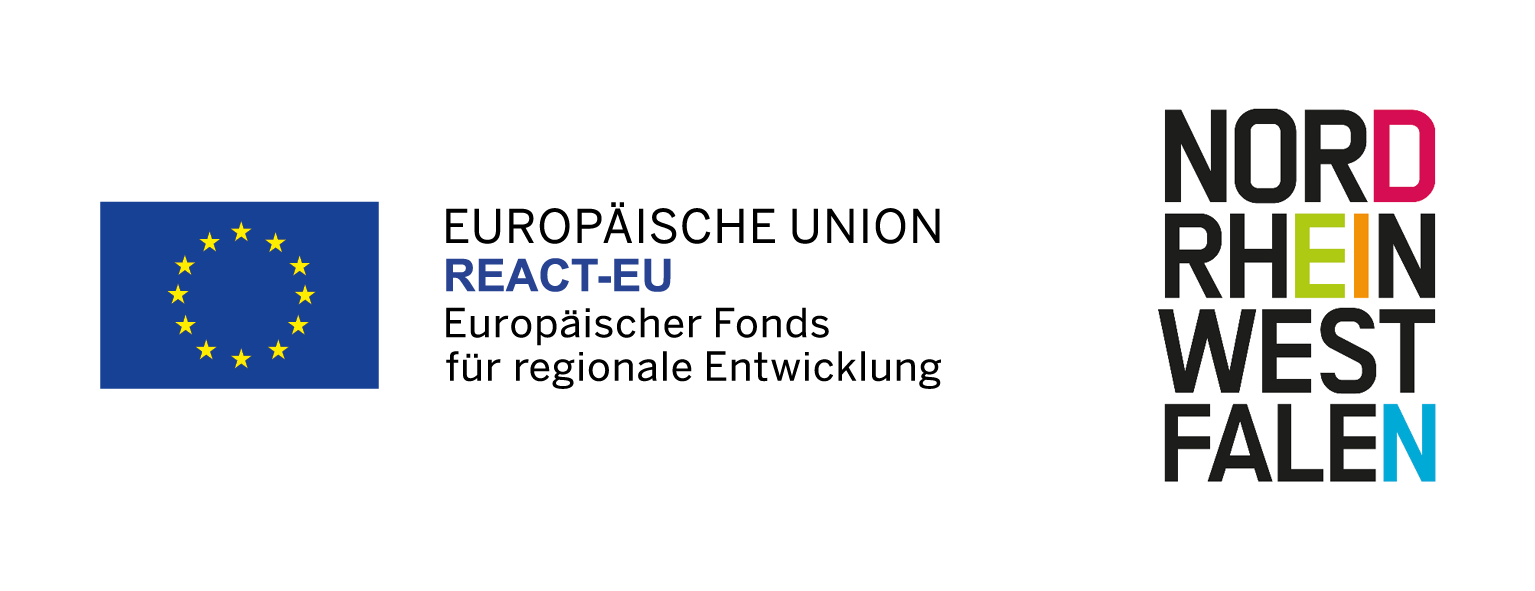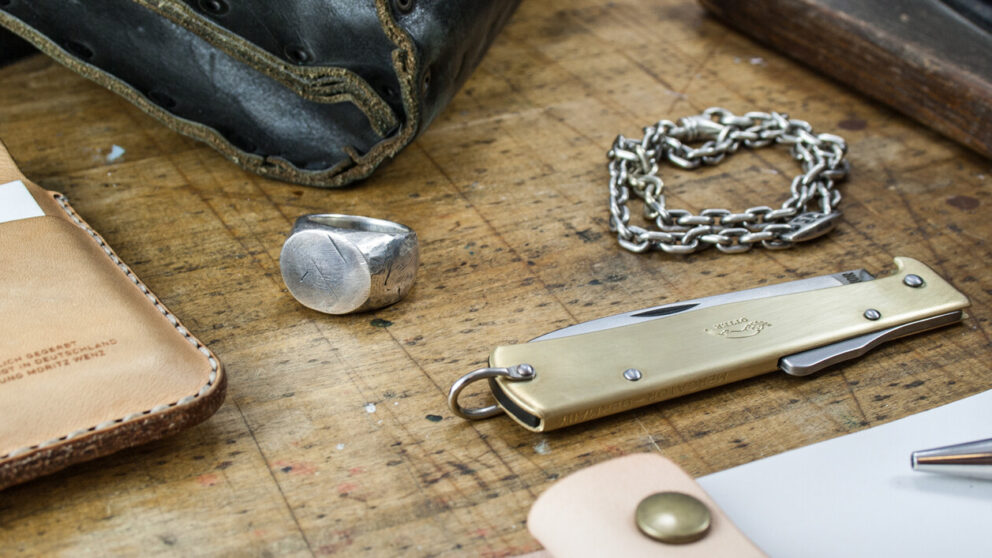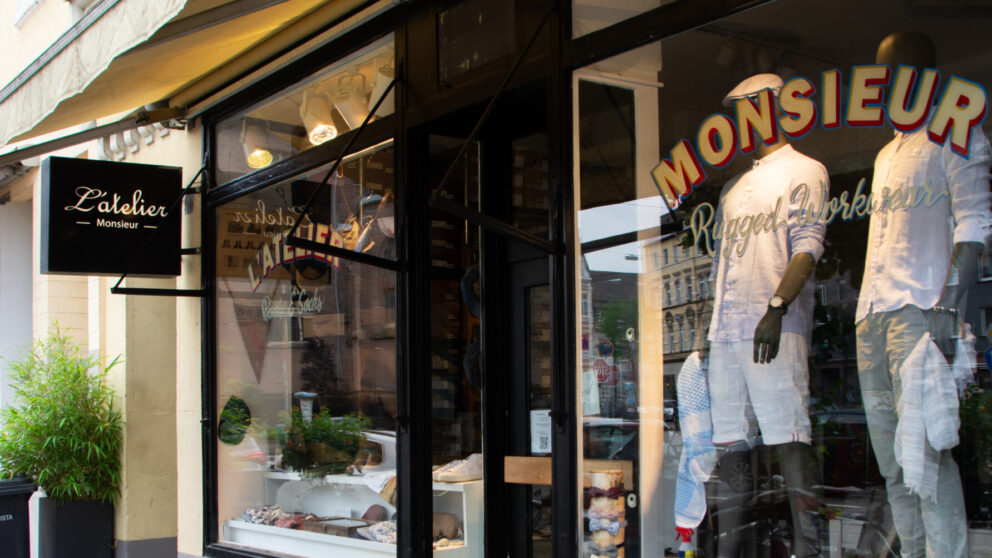
From the Seine to the Rhine

From the Seine to the Rhine
Fashion designer Stephanie Hahn has her hands full. In addition to her own 22/4_HOMMES_FEMMES collection, she also runs the multi-label concept store Live Lab Studios in Unterbilk. Here, Hahn offers carefully curated fashion from international labels, hand-picked interior design objects, jewellery and cosmetics, as well as her own designs. Until five years ago, her brand was based in Paris and she commuted between the Rhine and the Seine. Now, Hahn is back and giving Düsseldorf her full attention. In the following interview, she explains how this came to be.
Stephanie, what does Düsseldorf mean to you?
For me, Düsseldorf is home first and foremost. Most of my family live here, I grew up here and went to school here. I really like the size of the city. In Paris or Berlin, you need to allow at least 45 minutes to run errands. In Düsseldorf, it’s 20 minutes at the most. And yet I have everything here that an international city has to offer. On the fashion front alone, we have Hermès, Gucci, Prada, Louis Vuitton and Tiffany – the names that many tourists go to Paris for.
“Time is the most precious thing for me”
And apart from shopping – what else do you associate with Düsseldorf?
The wide river running straight through Düsseldorf gives it an almost idyllic feel. You can pack a picnic, head to the Rhine meadows in Niederkassel and find yourself surrounded by nature in the middle of the city. And then there’s all the art and culture to discover. Where else can you experience so many different things in one day? Not to mention the international airport, which is brilliantly located just 15 minutes from the city centre. Time is the most precious thing for me and I love how quickly I can get from A to B here. I’m simply much more productive in Düsseldorf.



Are you also fond of Düsseldorf’s traditions?
Yes, I love the brewpub culture in the Old Town. When we were young, our parents used to meet family friends at the brewhouses at the weekend and us kids used to just run around and enjoy ourselves. Great times! Outsiders often remark how the locals in Düsseldorf head out to the bars as soon as the first rays of sunshine appear.
“It’s no coincidence that Kraftwerk were founded here”
What are your biggest cultural influences?
That’s an easy one: Düsseldorf’s rich musical heritage, and its art too. You know, it’s no coincidence that Kraftwerk were founded here. There are – and always have been – very exciting influences in our city. Some people may remember the Mata-Hari-Passage shopping arcade, which specialised in platform shoes back in the '80s. The owner of the café in the arcade always walked around with a parrot on his shoulder and the record shop was legendary – just like the Salon des Amateurs today, which started out as an art project. Or a place like Bar Olio, which has been in business for decades and has managed to retain its charm as all around it has changed.
You opened your concept store Live Lab Studios in 2020, the first year of the coronavirus pandemic. Until 2017, your brand had been based in Paris. Wouldn’t you have found more of an audience there for your specially curated selection of products? I’m thinking of the interior design objects by Dirk van der Koij, for example.
For me it was clear from the outset that Düsseldorf was the only place for Live Lab Studios. I feel a different kind of energy and vibrancy here. I see many people who have brilliant ideas and are transforming these ideas into exciting new projects. And there is also a willingness on the part of the city to do something. I couldn’t wait to create a new shopping experience in Düsseldorf that was about as far from the mainstream as you can get. Especially since Düsseldorf has a bit of a reputation in Germany for being rather conventional. This makes a concept like mine all the more unexpected and more of a positive surprise than in cities such as Paris or Berlin, perhaps. Plus, the competition is not as intense as in those cities. If you take an unconventional approach here, you’re more likely to stand out and be well received.



You also wanted to create a cultural space. Is that right?
Yes, we participate in the ‘strike a pose’ festival, for example, and off the back of that we recently offered a workshop on how language influences our perception of gender roles. We’re also an off location of the DC Open, the annual gallery tour in Düsseldorf and Cologne, and exhibit artwork by students of the Kunstakademie. It all ties in with my concept.
So can Düsseldorf really be considered a city of fashion?
That is not an easy question. Big showrooms have a tradition here, of course, so in that respect: yes! But I would like to see Düsseldorf’s avant-garde fashion scene grow even more and tap into the interesting opportunities that Düsseldorf offers as a location. I can tell that consumers want new, independent labels.
What has inspired you the most in the last few months?
The Ando Future Studios. A group of young designers and artists came together here and swiftly realised that if they join forces as a collective, they can achieve so much more.
Where are we likely to find you when you’re not working?
I love walking my dog along the Rhine, between Oberkassel and Heerdt. I also love the Langen Foundation, not least for Tadao Ando’s stunning architecture. I feel really at ease there. My favourite restaurant is Polis on Dominikanerstrasse, which belongs to the cult gyros snack bar Akro, but is a real Greek restaurant serving authentic, freshly made food. It’s always very lively and you can meet anyone and everyone there!

Interview by Ilona Marx and Markus Luigs (photos).
This article is supported by REACT-EU.
Images: Düsseldorf Tourism




